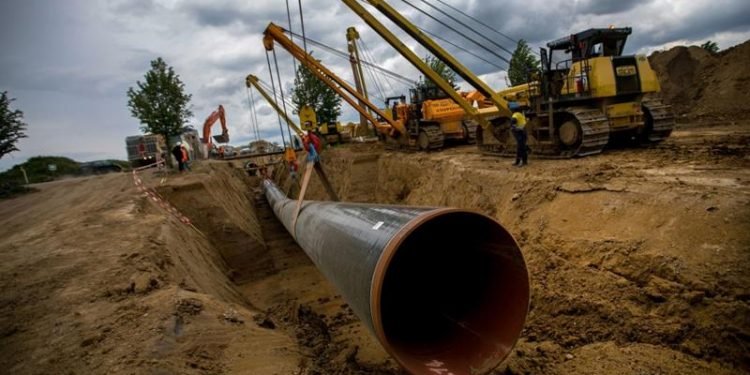Brussels (Brussels Morning) Germany continues to send mixed messages on the Nord Stream 2 gas pipeline, Chancellor Olaf Scholz having stated on Tuesday that all options remain on the table.
Last week, German Defence Minister Christine Lambrecht argued that the natural gas pipeline should not be drawn into the conflict over Ukraine, according to Reuters reporting.
“We need to solve this conflict, and we need to solve it in talks – that’s the opportunity that we have at the moment, and we should use it rather than drawing a link to projects that have no connection to this conflict”, she declared.
Scholz met with NATO Secretary-General Jens Stoltenberg in Berlin on Tuesday to discuss how to proceed in the event Russia attacks Ukraine. Moscow’s deployment of troops near the border with Ukraine has raised concerns in the West.
While Scholz previously announced Germany was prepared to impose sanctions on Russia if it attacks Ukraine, he describes Nord Stream 2 as a private project which he believes should not be slapped with sanctions.
Historically, Germany’s political party line-up, Scholz’s Social Democratic Party has been the closest to Russia. Now, as part of the governing coalition, his party has come under pressure to solve the country’s energy problems as Germany transitions away from nuclear energy and coal.
Critics warn against pipeline
The US and several European countries have been critical of Nord Stream 2, warning that it will make Europe more dependent on Russian gas.
The pipeline, though completed, requires regulatory approval before it can start to operate, a decision that could be up to the EC since the pipeline is subject to EU regulators.
Just last week, Josep Borrell, EC Vice-President and High Representative of the EU for Foreign Affairs and Security Policy, made clear that regulatory approval is tied to potential conflict with Moscow.
After yesterday’s meeting with Scholz, Stoltenberg noted that he had invited Russia and NATO allies to further talks since their last series of meetings had proved inconclusive.
“NATO’s allies are prepared to discuss concrete proposals on how to reduce risks and enhance transparency regarding military activities and how to reduce space and cyber threats”, he declared.




